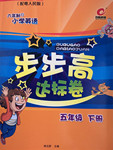题目内容
Decisions, decisions! Our lives are full of them, from the small ones to the life-changing. The right to choose is central to everyone. Yet sometimes we make bad decisions that leave us unhappy or full of regret. Can science help?
Most of us know little about the mental processes that lie behind our decisions. Luckily, what psychologists are finding may help us all make better choices. Here are some of their amazing discoveries to help you make up your mind.
Consider your emotions. You might think that emotions are the enemy of decision-making, but in fact they are a part of it. Whenever you make up your mind, your brain’s emotional centre is active. University of Southern California scientist, Antonio Damasia, has studied people with damage to only the emotional parts of their brains, and found that they were unable to make basic choices about what to wear or eat. Damasia thinks this may be because our brains store emotional memories of past choice, which we use to help the present decision-making.
However, making choices under the influence of an emotion can greatly affect the result. Take anger for example. A study by Nitika Garg of the University of Mississippi and other scientists found the angry shoppers were more likely to choose the first thing they were offered rather than considering other choices. It seems that anger can lead us to make quick decisions without much thinking.
All emotions affect our thinking and motivation,so it may be best to avoid making important decisions under their influence. Yet strangely there is one emotion that seems to help us make good choices. The American researchers found that sad people took time to consider the various choices on offer, and ended up making the best choices. In fact many studies show that people who feel unhappy have the most reasonable view of the world.
1.What does the underlined word “central” mean?
A.in the middle B.easy to reach C.important D.having power
2.Damasia’s study suggests that ________.
A.emotions are the enemy of decision-making.
B.our brain has nothing to do with decision-making.
C.people with physical damage find it hard to make up their minds.
D.our emotional memories of past choices can affect present decisions.
3. According to the text, what may help us make better decisions?
A.To think about happy times. B.To make many decisions at a time.
C.To stop feeling regretful about the past. D.To learn about the process of decision-making.
4. Why are angry shoppers more likely to choose the first thing they are offered?
A.They often forget their past choices. B.They make decisions without much thinking.
C.They tend to save time when shopping. D.They are too angry to bargain.
5.What do we learn from the text?
A.Emotions are a part of decision-making.
B.Sad people always make worse choices.
C.No emotion seems to help us make good choices.
D.Only sad feelings affect our thinking and motivation.
1.C
2.D
3.D
4.B
5.A
【解析】
试题分析:本文讲述了影响人做出决定的多种因素,以及人的心理因素的对做决定的影响。
1.C 推理题。根据文章第一段前3行Decisions, decisions! Our lives are full of them, from the small ones to the life-changing. The right to choose is central to everyone. Yet sometimes we make bad decisions that leave us unhappy or full of regret.可知这里的central是指做决定对每个人都很重要。故C正确。
2.D 推理题。根据第二段前3行Consider your emotions. You might think that emotions are the enemy of decision-making, but in fact they are a part of it. Whenever you make up your mind, your brain’s emotional centre is active.可知D项正确,接下来所列举之例子正是为了解释这个理论。
3.D 推理题。根据文章4,5,6行Most of us know little about the mental processes that lie behind our decisions. Luckily, what psychologists are finding may help us all make better choices. Here are some of their amazing discoveries to help you make up your mind.可知了解做决定的心理发展过程是非常重要的,所以我们才要去了解这方面的内容。故D正确。
4.B 细节题。根据文章倒数第二段最后一句It seems that anger can lead us to make quick decisions without much thinking.可知他们没有做太多的思考就做出了决定,B正确。
5.A 细节题。根据第二段前2行You might think that emotions are the enemy of decision-making, but in fact they are a part of it.说明A正确。
考点:考查科普类短文阅读
点评:本文讲述了影响人做出决定的多种因素,以及人的心理因素的对做决定的影响。本文主要考查推理题。在解题时要立足已知,推断未知。立足现在,猜测未来。不能主观臆想,凭空想象,随意揣测,更不能以自己的观点代替作者的观点;要把握句、段之间的逻辑关系,了解语篇的结构。要体会文章的基调,揣摸作者的态度,摸准逻辑发展的方向,悟出作者的弦外之音。

 步步高达标卷系列答案
步步高达标卷系列答案 VeterinaryPartner.com has provided this
complete reference book online for you to skim through, expanding your
knowledge of dog and cat first aid;however, we
encourage you to buy the book to keep in your home or car as a quick reference
during an emergency.
VeterinaryPartner.com has provided this
complete reference book online for you to skim through, expanding your
knowledge of dog and cat first aid;however, we
encourage you to buy the book to keep in your home or car as a quick reference
during an emergency.